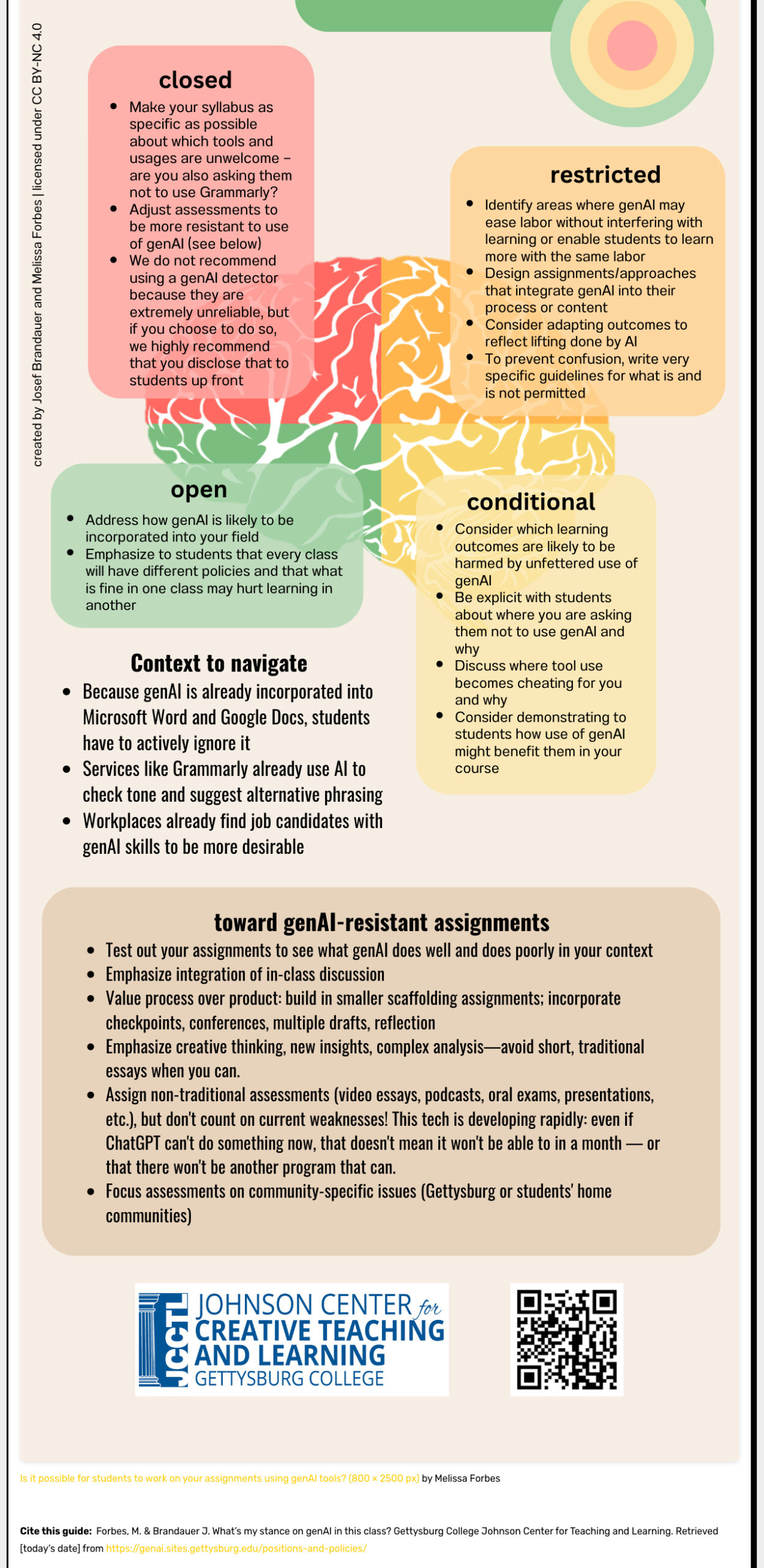This is a terrific resource courtesy of the Johnson Center for Creative Teaching and Learning at Gettysburg College:
Forbes, M. & Brandauer J. What’s my stance on genAI in this class? Gettysburg College Johnson Center for Teaching and Learning. Retrieved February 7, 2024 from https://genai.sites.gettysburg.edu/positions-and-policies/

